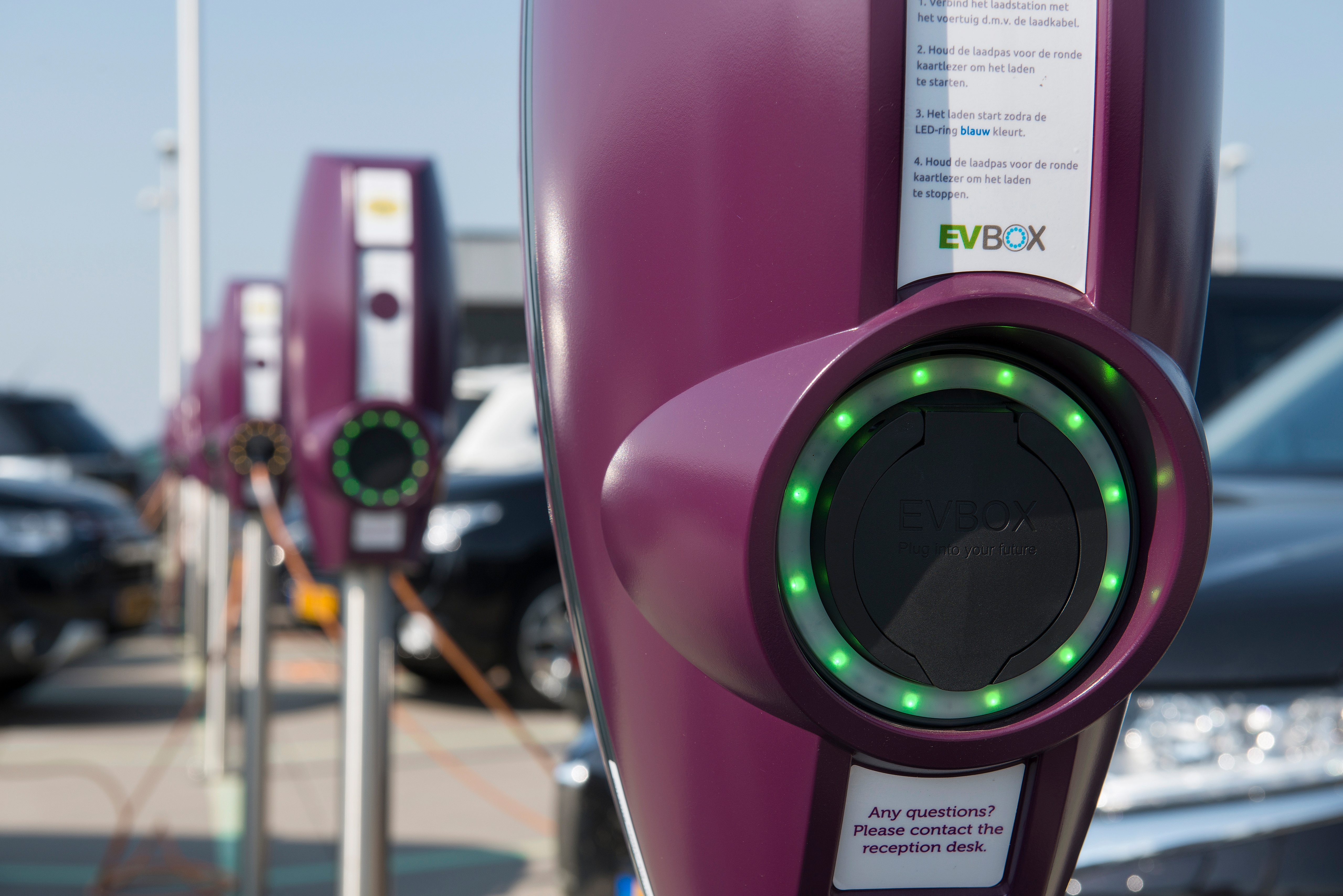
Whether you are installing a single chargepoint, or a multi-site network, there are a few things you need to take into account when choosing the best commercial EV charging stations.
First of all you need to work out which charger type(s) you need. We have written a page all about chargepoint types here. In general if you are providing workplace charging, you are best looking at a 3 phase 16A or 32A universal Type 2 socket, giving power of 11kW or 22kW. If you only have a single phase connection at the charging site, you'll be restricted to providing power of 3.6kW or 7.2kW.
Then you need to work out what functionality you need:
Our most popular commercial chargepoints are those made by Rolec, in particular the BasicCharge and SecuriCharge. These offer most of the features you need for workplace charging at a decent price. To manage these chargers online and collect payments for their use, you’ll need to add on the EV Charge.Online management software.
At a slightly more premium level, we recommend EVBox for its BusinessLine charger. This has comprehensive functionality and a fantastic platform for managing a fleet of chargepoints.
|
Charger |
Rolec BasicCharge |
Rolec SecuriCharge |
EVBox Businessline |
|
Power rating |
3.6kW / 7.2kW |
3.6kW / 7.2kW (single phase) 11kW / 22kW (three phase) |
7.2kW (single phase) 11kW / 22kW (three phase) |
|
Mounting |
Pedestal |
Wall |
Pole or wall |
|
Management platform |
EV Charge.Online |
EV Charge.Online |
Hey EVBox |
|
Scalability |
Manage ‘multiple’ chargers |
Manage ‘multiple’ chargers |
Manage unlimited hubs, with up to 20 chargers per hub |
|
Online monitoring |
✓ |
✓ |
✓ |
|
Online costs |
£135 per socket every 3 years |
£135 per socket every 3 years |
On request |
|
Payment collection |
Smartphone / RFID |
Smartphone / RFID |
Smartphone / RFID |
|
Access restriction |
✓ |
✓ |
|
|
Load management |
✓ |
✓ |
✓ |
|
Warranty |
1 year (standard) 3 years (with grant) |
1 year (standard) 3 years (with grant) |
3 years |
|
Price |
£ |
££ |
£££ |
|
Qualifies for Workplace Charging grant |
✓ |
✓ |
✓ |
If you would like a quote for the supply and installation of an EV chargepoint, please call us on 0118 951 4490, email us at info@spiritenergy.co.uk or complete our online form:
We are happy to provide comparative quotes for more than one type of chargepoint. We can also assist in deciding which chargepoint is right for you.
Copyright © Spirit Energy 2026 · info@spiritenergy.co.uk · 0118 951 4490
Jobs and Careers
Interested in joining the Spirit team? Email jobs@spiritenergy.co.uk
Spirit House, 25 Albury Close, Reading, RG30 1BD
(Location formerly known as 44 Portman Road, Reading, RG30 1EA)
Spirit Energy is the trading name of Spirit Solar Ltd · UK Company Number 07138647
Although care is taken to ensure that the information on our website (www.spiritenergy.co.uk) and any guides, calculators or checklists provided by us, electronically or otherwise, are accurate and up-to-date, we cannot accept any responsibility for mistakes or omissions. We enter into no express or implied conditions, warranties, terms or representations regarding the quality, accuracy or completeness of the information. We exclude to the extent lawfully permitted all liability for loss or damage, whether direct, indirect or consequential arising out of your use of our website or any guides, calculators or checklists provided by us, or from any information or omission contained in our website or any guides, calculators or checklists provided by us.